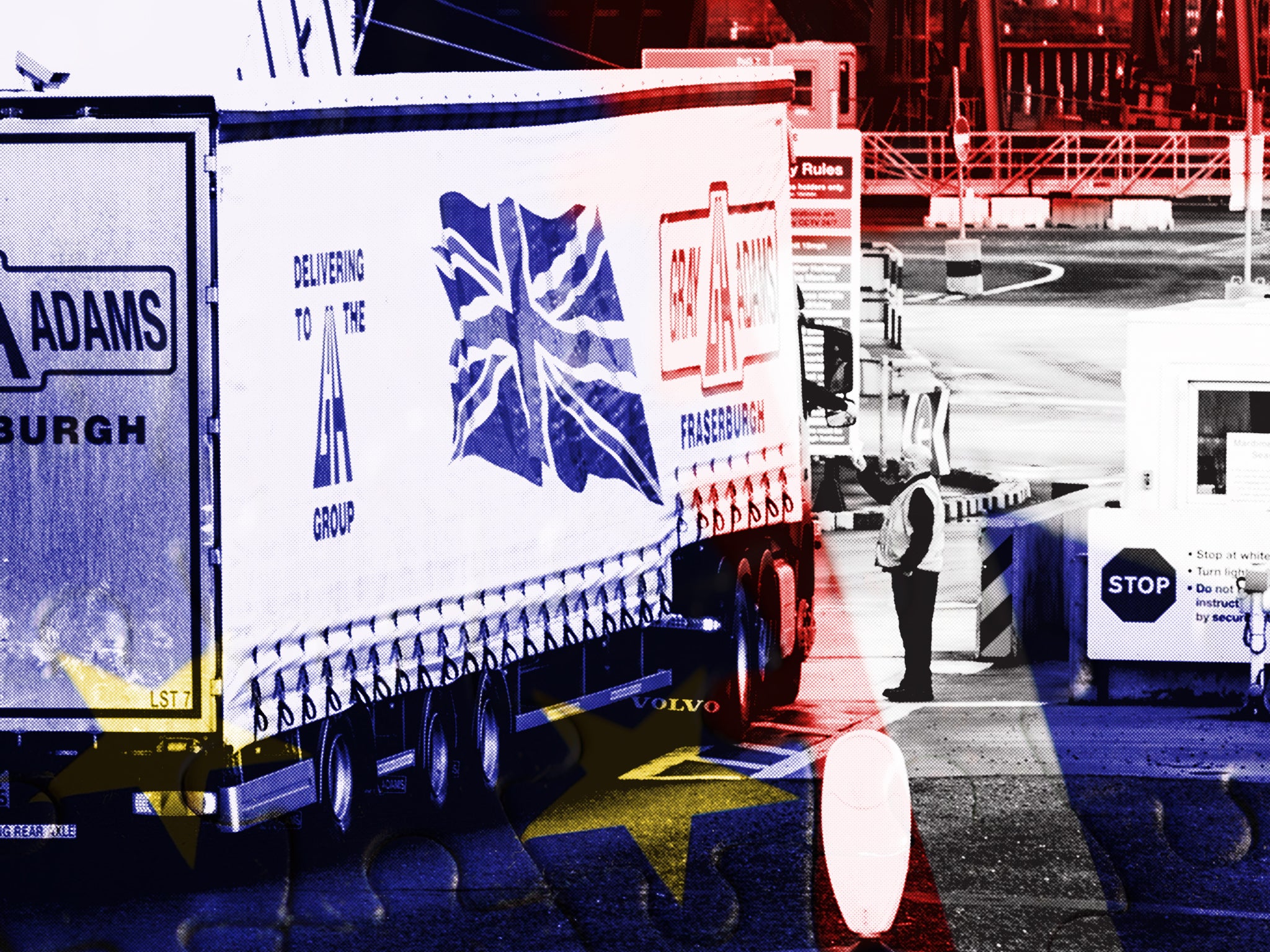Could a new Brexit deal really end the Northern Ireland protocol saga?
The DUP is undeterred in its opposition to the protocol, writes Sean O’Grady


Talks between Britain and the EU over the Northern Ireland protocol are in the crucial final phase, with a deal possible as early as next week.
Rishi Sunak is under pressure from his divided party over the protocol, with Brexiteers urging him to defy the EU, and moderates asking him to sign a compromise.
What does this mean?
The protocol – part of the UK-EU withdrawal agreement, and thus the Brexit deal – has been a source of friction between Britain and Brussels since it was signed off by Boris Johnson as prime minister in 2019. It plonks an economic border between Great Britain and Northern Ireland, and thus within the UK.
Although the new arrangement allowed the province, uniquely, to be part of both the UK and EU economic zones, and benefited some businesses, it also inconvenienced others, and consumers complained about the disappearance of familiar items.
It was claimed to raise costs and inflation, and was in any case resented by the unionist community. Indeed, the Democratic Unionist Party (DUP) has been boycotting the Northern Ireland Executive because it says the protocol undermines the position of Northern Ireland within the UK. Although the DUP and its allies recently lost a Supreme Court case claiming the protocol was unconstitutional, they are undeterred and their political resistance remains.
So what’s new?
There have been many false dawns, but this time some dare to believe that a breakthrough may be at hand. In fact, despite the rhetoric on either side, the outlines of a likely deal have been apparent for some time. The changes to the protocol will probably be of a procedural and administrative nature, and not require a new protocol text, which in turn would require ratification by all 27 EU member states and raise the possibility of old arguments erupting all over again. If changes are made to the text, they will be minimal, for that same reason.

There will most likely be “green” and “red” zones for items destined respectively for Northern Ireland and for onward movement to Ireland. There may be some streamlined veterinary and food hygiene checks, a “trusted trader” scheme, and a generally more relaxed attitude from officials on all sides. (Britain has complained at European over-enforcement of regulations, while Brussels countered that the British government wouldn’t honour a solemn international treaty.)
In the end, it was more or less about getting a lorry-load of Sainsbury’s sandwiches and other goods across a road, and easily sorted out with goodwill. In that spirit, the British will scrap the Northern Ireland Protocol Bill that is currently stalled in parliament, which would have amounted to a unilateral breach of the whole Brexit deal and raised the spectre of EU retaliation or trade sanctions.
However, it seems that the European Court of Justice may yet retain some sort of role in adjudicating legal disputes, because they concern the laws governing the EU single market.
Is that the end of the protocol saga?
Sadly, it may not be. The DUP and their allies on the right of the Tory party find the concept of any kind of border between Britain and Northern Ireland irksome, if not offensive, and will do their best to defeat the deal if it has to gain UK parliamentary assent. In addition, the original protocol bill was very much assisted by Johnson and Liz Truss, and they could be at the vanguard of opposition to Sunak’s deal in the Commons and the wider Conservative Party.
And the DUP?
Certainly, they seem determined to hold the Northern Ireland Assembly and Executive hostage to their demands. For example, the latest attempt to get a single piece of legislation through the assembly – “Daithi’s law” on organ donation, named after a six-year-old Belfast boy waiting for a heart transplant – was thwarted by the DUP’s refusal to nominate a speaker, even though the measure enjoys cross-party support. It was entirely expected, but serves as a reminder of their determination.
There seems little incentive for the DUP to accept the new Sunak deal. If it can be imposed on them, with Sunak drawing on Labour votes to push it through the Commons, there is no reason for them to enter into a new power-sharing administration in Belfast.
At the moment, their boycott is popular with their political base. The DUP may also be averse to nominating a deputy first minister, Jeffrey Donaldson, who would have to be second to Sinn Fein’s first minister-elect, Michelle O’Neill.
What happens next?
Sunak is to have more discussions with EU leaders on the margins of a security conference in Munich this week, and he’ll be keen to get the issue out of the way in as low-key a manner as possible, which means taking it slowly with the DUP. In the end, he can’t allow only one party in one community an absolute veto over an international deal. It’s also worth remembering that Northern Ireland voted to stay in the EU, and the nationalist and republican parties are broadly content with the protocol.
The DUP will also have plenty of time to mull over its decision. The secretary of state for Northern Ireland, Chris Heaton-Harris, has postponed fresh elections to the Northern Ireland Assembly until next year, and those may end up coinciding with a UK general election. Meanwhile the province will have to muddle through, with civil servants taking administrative decisions while Westminster deals with any pressing legislative needs.
Is it the end for the 1998 Good Friday Agreement (GFA) and peace on the island of Ireland?
It’s certainly not going to be a happy 25th birthday for the GFA this Easter, but so long as none of the various participants renounces it, peace will probably survive. The power-sharing machinery of government has endured many prolonged pauses since the agreement was signed in 1998; and, protocol or not, it’s still the only game in town.
Join our commenting forum
Join thought-provoking conversations, follow other Independent readers and see their replies
Comments
Bookmark popover
Removed from bookmarks